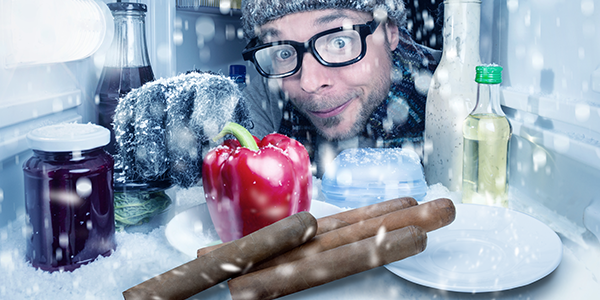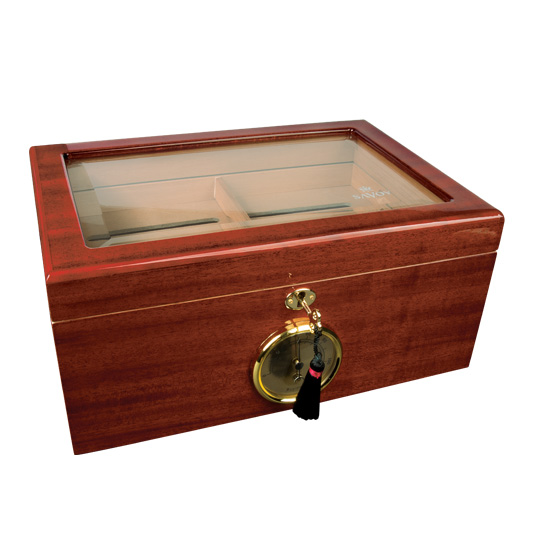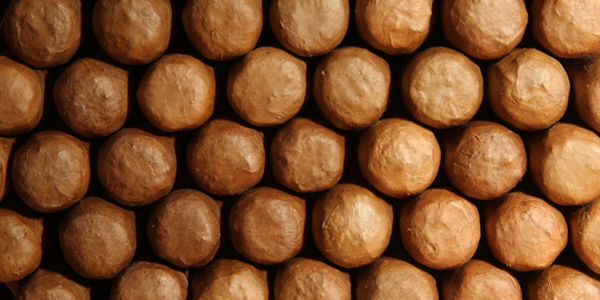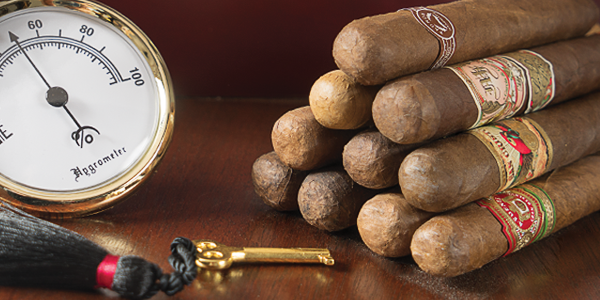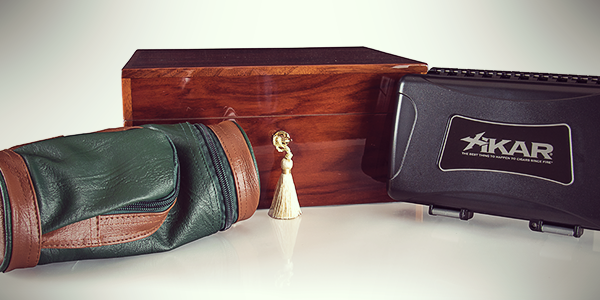Cigar/Tobacco Beetles: How to Spot & Get Rid of Them
I detest bugs. Especially when they occupy any proximity to my bed or anything that I might put in my mouth. Of course, that includes my cigars. Hmm. You’re probably wondering what kind of bugs would ever bother coming near a cigar? Well, believe it or not, tobacco beetles exist. And they love tobacco more than you do. Although most premium cigar-makers take precautions to prevent an unwanted outbreak of cigar beetles, one can still occur when the conditions are right – even in your personal humidor at home.
Signs of Tobacco Beetles
Tobacco beetles leave miniscule holes in a cigar’s wrapper. The holes are usually about the size of a pinhole. They appear to bore into a cigar’s center or along its side. Accompanying these tiny holes is often a trail of powdery loose tobacco particles which are more noticeable when they shake out into a cigar’s cellophane sleeve, if the sleeve is still on the cigar. Beetles can wreak havoc on your cigar collection with or without cellophane, though. In some cases, the beetles may be limited to a single cigar or two. But, the longer they go unchecked, the more damage they can do. Cigar beetles can take down an entire humidor full of cigars.
What is a Tobacco Beetle?
Lasioderma serricorne is the scientific name for what we commonly call a cigarette beetle, cigar beetle, or tobacco beetle. At roughly just 2 to 3 millimeters in size, tobacco beetles harbor a ferocious appetite on their way to adulthood. Ironically, adult beetles do not feed but will drink liquids. Prior to adulthood, however, the tobacco beetle larvae heartily consume what is in their path, including tobacco leaves, paper, and packaging. The life cycle of a cigar beetle is highly dependent on temperature and food source, but often spans 40 to 90 days. Female beetles lay 10 to 100 eggs. Six to ten days later larvae will emerge and spend the next 5 to 10 weeks feeding.
Although tobacco beetles are the number one most destructive pest of stored tobacco, they are also known to damage a number of other household items, including cereal, cocoa, coffee beans, flour, herbs, rice, nuts, spices, dates, raisins, and other products typically stored in kitchen cabinets and pantries. Dried floral arrangements, potpourri, furniture stuffing, objects made of papier-mâché, and more are also susceptible.
What Causes Cigar Beetles to Hatch?
Tobacco beetles need a warm, humid climate – just like in your humidor – in order to thrive. Often, what causes an outbreak of cigar bugs is temperature-related. Beetles can’t randomly find their way into your humidor. They are transferred into it by way of cigars you have purchased or been given that contain beetle eggs. It’s actually common for cigars to host beetle eggs, however, the eggs require specific conditions in order to hatch.
Often, an increase in temperature triggers an outbreak. It’s highly recommended not to let the temperature in your humidor exceed 70 degrees Fahrenheit. Storing your humidor in direct sunlight or too close to a heating vent, for example, can lead to conditions that promote an onset of cigar beetles.
To ensure your humidor is at the right temperature to avoid beetles, check out our article on How to Set Up a Humidor.
Can You Smoke a Cigar with Beetle Holes?
No. And you wouldn’t want to. Cigar beetles destroy the integrity and construction of a premium handmade cigar. Not only will the cigar not burn correctly, but there are beetles crawling around inside it. Would you eat a hotdog if ants were crawling all over it? No. The same goes for a beetle-infested cigar – toss it out. No cigar is worth the fuss of trying to smoke it after beetles have begun consuming it.
Monitor Your Humidor
Crack the lid on your humidor a couple times a week and take a look at your cigars. Rotate them and keep your eyes out for any signs of beetles. Cigar beetles are not so common that you should constantly live in fear of them, however, if you notice any signs that they are present, getting rid of them early and limiting the damage is key. An outbreak of beetles from just one cigar can annihilate your entire collection if you don’t act to stop it.
Who wants to come home and discover a whole box of Padron 1964 Anniversary Diplomaticos or Ashton VSG Robustos was destroyed by beetle-infested cigars you bought from a random vendor on the beach when you were on vacation? Not us.
How to Kill Cigar Beetles
If an outbreak of cigar beetles occurs, remove all the cigars from your humidor. Any cigars that are noticeably damaged are best thrown out. Pinhole-sized openings in a cigar’s wrapper are a sure indication beetles have gotten to it. There isn’t much remedy for cigars that have already been destroyed by beetles. However, for your remaining supply, put them in ziplock bags. If any of your cigars were purchased with or came from the same box as the cigars infected with beetles, keep those ones in a separate ziplock bag. In doing so, we want to stop the beetles from spreading and isolate any potential further damage. If you want to be extra thorough, you can even place each cigar in its own ziplock bag.
Next, place the ziplock bags in your freezer. Leave them in the freezer for 3 days. Cigar beetles and their larvae cannot survive in freezing temperatures. After 3 days, move your ziplock bags into the refrigerator. Leave them in the fridge for another full day. The goal is to gradually introduce your cigars to a warmer temperature after they have been frozen. Instantly exposing your cigars to room temperature will shock them and can cause the wrappers to crack if they expand too quickly.
After your cigars have spent 24 hours in the fridge, it’s safe to return them to your humidor. Before doing so, make sure you’ve cleaned out the humidor and that there are no traces of beetles left in the box. Inspect your humidification unit as well. Replace it if you suspect it could harbor any beetles. Beyond that, your cigars should be back to normal in no time.
As a side note, bug sprays or insecticides are not something to consider. Such chemical treatments will ruin your cigars and your humidor and are not safe to apply to anything you intend to smoke.
Eradicating cigar beetles is a fairly simple process. Keeping a vigilant eye on your cigar collection is the best means for prevention.

